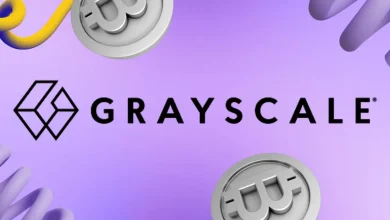
WikiLeaks is using Bitcoin's blockchain to store 76,911 secret documents about the Afghanistan War.
This project, named Project Spartacus, aims to honor Julian Assange and his fight for free speech.
The initiative highlights Bitcoin's potential to protect crucial information and its role in supporting causes that challenge traditional power structures.
WikiLeaks, led by Julian Assange, is launching Project Spartacus to protect 76,911 secret documents about the war in Afghanistan. These documents, which expose U.S. military actions, civilian casualties, and interrogation methods, will be stored on the Bitcoin blockchain. This ensures they can never be erased or hidden.
Why It Matters
When the Afghan War Logs were released in 2010, they revealed crucial truths about the war in Afghanistan, including details the public had never known. To make sure this important information can never be lost, Assange’s team is putting it on Bitcoin’s blockchain, where it will remain accessible forever. Even if WikiLeaks’ website is shut down, these documents will stay online.
How It Works
Project Spartacus will use Bitcoin’s blockchain to store these 76,911 files as small pieces called satoshis, using a tool called Ordinals. The process will start on December 12, 2024, and will take time because of the large number of documents. Once they’re on the blockchain, they cannot be changed or deleted.
Interestingly, this project is more than just storing documents—it’s also about remembering Julian Assange’s role in the fight for free speech. Assange’s team isn’t trying to raise money from this project; instead, they want to honor his legacy by putting these important files on Bitcoin, a decentralized system that can’t be controlled or stopped by any government.
- Also Read :
- Bitcoin Price Prediction 2025: Key Targets Revealed!
- ,
Bitcoin’s Power to Protect Free Speech
What makes this project special is Bitcoin’s ability to protect information from censorship.
Julian Assange’s story is closely linked to Bitcoin’s early days and its mission to resist censorship. When traditional banks cut off WikiLeaks’ funding, Bitcoin became a lifeline, raising over $30 million to support Assange’s legal efforts. This showed the world how Bitcoin could stand strong when other systems failed.
Assange’s use of Bitcoin proved how the cryptocurrency could help protect free speech, keeping WikiLeaks operational even when global financial systems tried to block it. Bitcoin’s creator, Satoshi Nakamoto, even noticed the growing attention the currency was getting in 2010, and worried about the spotlight on Bitcoin.
But Assange showed how Bitcoin could support free speech, making it a real-world example of its power to resist censorship.
Never Miss a Beat in the Crypto World!
Stay ahead with breaking news, expert analysis, and real-time updates on the latest trends in Bitcoin, altcoins, DeFi, NFTs, and more.
History remains untold, unbroken, and uncensored.






